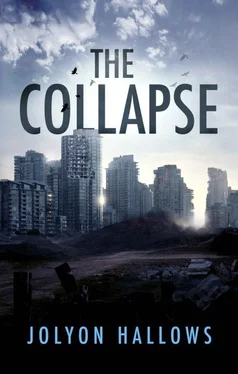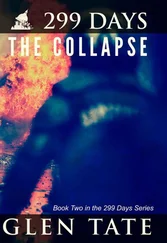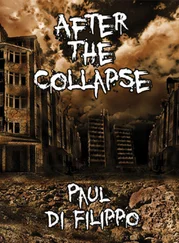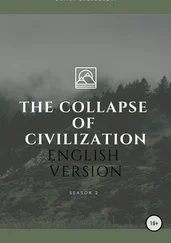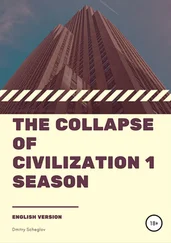“The government of Canada is imposing restrictions on the use of vehicular fuels. This restriction is the result of the failure of oil companies to provide sufficient fuel to its stations to meet normal demand. It is imperative that government agencies responsible for keeping the peace have sufficient fuel to fulfill their duties. Therefore, until further notice, all service stations are ordered closed. Existing stocks of fuel will be reserved for use by public transit, first responders, and agents of the National Peacekeeping Force. We expect to introduce a fuel rationing system within a month. Until that time, citizens are urged to cycle or use public transport.”
“Susan, have you spoken to the service station operators? Were they aware this restriction was coming?”
“No. This announcement caught everyone I’ve spoken to completely by surprise.”
“Do they have any insight as to why they’re not getting fuel?”
“Nobody would agree to appear on camera, but several operators said the refineries that supplied them had to shut down because of a lack of crude. I asked about transport from the States, but we have reports that tanker trucks are being stopped at the border. This shortage appears to be sanctioned by the government, if not caused by it.”
“Are there penalties for anyone who disobeys the restriction?”
“The announcement didn’t mention any, but we have learned from sources within the department that they are working on it.”
“There is the suggestion that people use public transit. That may be feasible in a city, but what about smaller or rural communities? Do these restrictions apply to them?”
“We don’t know if there are contingency plans in place, but the government’s statement makes no exception for smaller towns.”
“The announcement places blame for the shortage on the oil companies. Has there been any response from the industry?”
“We tried to get a statement from several different oil companies, but nobody would appear on camera. The written statements we did receive said they were monitoring the situation.”
“There is mention of a rationing system. But even that requires fuel. Has the government said how it intends to provide that?”
“No. And we haven’t been able to get any information about their plans.”
“Thank you, Susan. That was Susan Frank in Ottawa reporting on a government restriction on gasoline and diesel fuels. We have Norman Reimer on the line. He is a spokesperson for the transportation fuel consortium. Mr. Reimer, I understand that your organization is an industry association of companies that provide gasoline and diesel to service stations. What is your reaction to what we’ve just heard? The fuel shortages and the government’s restrictions on fuel?”
“The shortages aren’t a surprise. For months now, our member companies have been struggling to get oil to the refineries. We estimate that over the last year, they’ve been operating at less than one-third capacity. That’s not enough to meet the demand.”
“So your organization has known of these shortages?”
“Known? We’ve been yelling about them for months. We have issued forecasts of demand versus supply. We have tried to warn the public and the politicians of what’s coming, but we’ve been ignored. We predicted these shortages over a year ago. Nobody bothered to pay attention.”
“What’s your reaction to the fuel restrictions?”
“Whenever you have a shortage of anything, there has to be some way to allocate what you do have. Rationing is one way, but we don’t believe it’s the best. If the government would just allow the oil to flow to the refineries, we could eliminate the shortages in under a month.”
“Do you see that happening?”
“Given the tenor of the times and the government’s unwillingness to take any but authoritarian actions, no, I don’t.”
“What do you foresee?”
“That’s not hard. The only powered vehicles left on the road will be Peak, sorry, National Peacekeeping Force rovers.”
“And of course, first responders and public transit.”
“I’m afraid not. We know how much fuel first responders and public transit use. Compared to private and commercial vehicles, it’s minuscule, but so are our supplies. Within a month, there won’t be enough for any but the most limited use. My guess is that those will go to the NPF. If you need an ambulance, better call one now because in a month, there won’t be any on the road.”
_____
TODD BAXTER STARED at the screen in disbelief. After the turmoil of the past few months, the riots, the imposition of martial law, the suspension of civil liberties, he hadn’t thought anything could shock him.
He was browsing through some new applications, ones he hadn’t been called upon to fix, when he opened a file with the innocent name, “Interview Centres.pdf.” It was a proposal, complete with floor plans, for facilities to interrogate potential subversives. The author was Commander Dimster himself. The file was labelled ultra-secret, which meant Baxter didn’t have the clearance to read it. But whoever created it hadn’t bothered to apply the security the file called for.
The report began with a preamble that said in part, “National security and the safety of our citizens require that we be able to interrogate suspected subversives to the fullest extent. While we recognize the value of civil liberties and protection of the innocent, we also know that there are elements in our society that intend to disrupt the peace that all citizens have the right to expect. Unfortunately, our police forces have been hamstrung by misguided concepts of individual rights and freedoms. They have been unable to properly interrogate suspects for fear of being criticized or even criminally charged. This document outlines the establishment of a national network of interview centres in which interrogations can be carried out without fear of civilian oversight or disciplinary consequences.”
The document described various means of extracting information from those who refused to provide it, although there was nothing in it that was new. Indeed, the practices it described were well known. Except they had been abandoned by all civilized countries centuries ago.
Torture.
But this wasn’t the torture such as waterboarding that preoccupied modern societies. It was the brutality of inflicting pain. The document twisted its language to disguise its intent. Whenever that failed, it was effusive in its concern for due process and its assurances that any exceptions applied solely to the most intransigent subversives. But lurking behind the bureaucratic cover was the document’s true intent. To introduce torture chambers.
Baxter fell back in his chair. His heart raced, his armpits soaked his shirt. One thought hammered away like a relentless gong. I have to stop this .
And with it, a whispered lament. How ?
_____
“THIS IS ARMAND Crisp reporting from the town of Forrest in southern Manitoba. The town had a population of about four thousand people, its main industry a food processing plant. About three months ago, local native activists, supported by the environmental organization Lovers of Gaia, shut down the rail lines that brought produce into the plant and shipped out the final product. The plant managers tried to replace the rail lines with transport trucks, but they couldn’t find any trucking company willing to risk the threats the activists made.”
The camera panned an abandoned warehouse squatting behind a chain-link fence, weeds pushing up the sides of the building. “The plant owners got an injunction against the protesters and were ready to resume operations, but the protesters ignored the court order, threatening violence against the police if they attempted to enforce it. The owners appealed to the National Peacekeeping Force to send in agents to clear the rail lines. They were told that the NPF was occupied in the cities. Since they couldn’t carry on operations, the owners dismantled the plant and moved it to North Dakota. They were able to get work visas for most of their staff. Last month, the plant locked its doors.”
Читать дальше
